Delivering the inaugural address at the two-day national seminar on 'Quality: The Key Factor in Administrative Reforms in Higher Education' organised by Besant Women's College in collaboration with the Association of First Grade College Principals, Mangalore University, at Besant College Auditorium here on Friday, he said that the growth in enrolment ratio will indeed be a great achievement considering the size of Indian population.
“To increase the gross enrolment ratio, every child should go to school and get education. To make this possible, the Right to Education (RTE) Act has been passed to ensure free education to each child. Employment to parents is being guaranteed and free mid-day meals are being provided to 10 crore children in the country. Scholarships are being given to the weaker sections of the society for higher education,” he said adding that there is a need to have separate university for research and innovation.
Speaking on the importance of quality in education, he said that India needs to be in the list of top ten Universities of the world.
“We are getting a bill for requirement on gradation and accreditation of educational institutions. There needs to be deliberation on the same before the legislation is passed,” he said urging the students to give their recommendations and feedback applicable to improving educational reforms.
In the keynote address, Director of National Assessment and Accreditation Council (NAAC) Bangalore Dr H A Ranganath said that dialogue and discussion was important in bringing changes in higher education reforms, through bills in legislation.
“Technology has failed to enter classrooms. We have to embrace technology to improve education in our schools. Sadly, excellence in teaching has been lost. We need dedicated teachers in classrooms. Dedication in teaching, coupled with technology must be the mantra, to take education to higher levels,” he said.
President of Women's National Education Society (WNES), Mangalore Kudpi Jagadish Shenoy, in his presidential address said that nation will fail to progress if there is no quality in education.
Principal of the college Dr Manjula K T delivered the welcome address. Co-ordinator of the seminar Prof Shirly Rani spoke on the theme, while co-ordinator Dr Anuradha proposed a vote of thanks. WNES vice-president Manel Annappa Nayak was present.
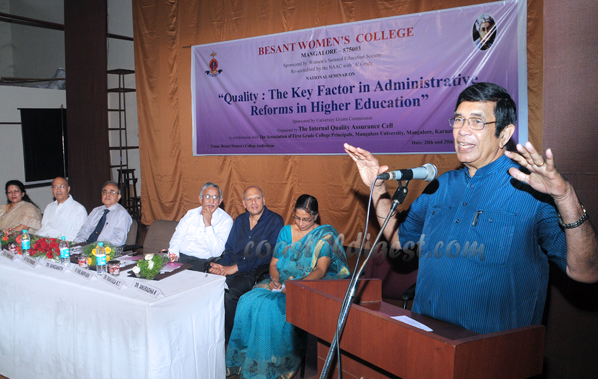
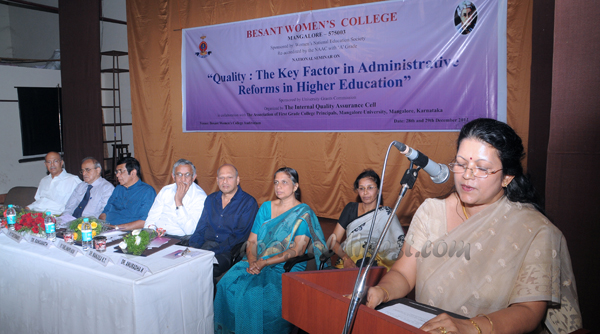
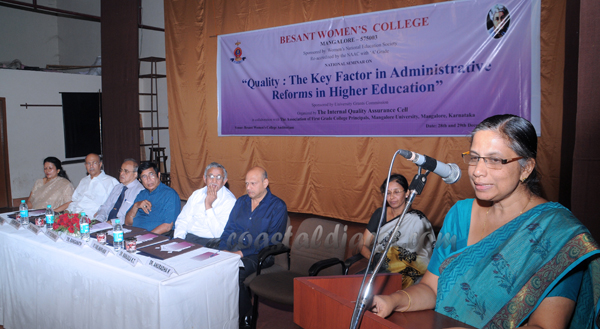
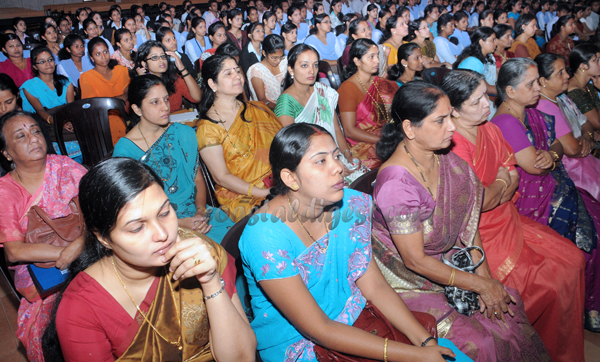
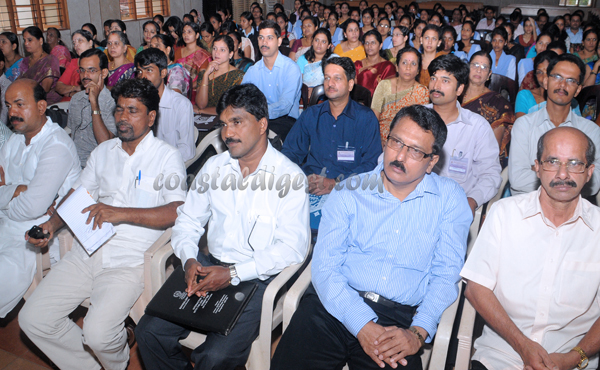
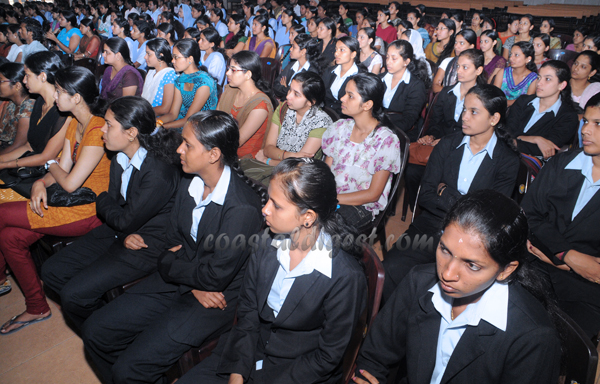





Comments
Add new comment